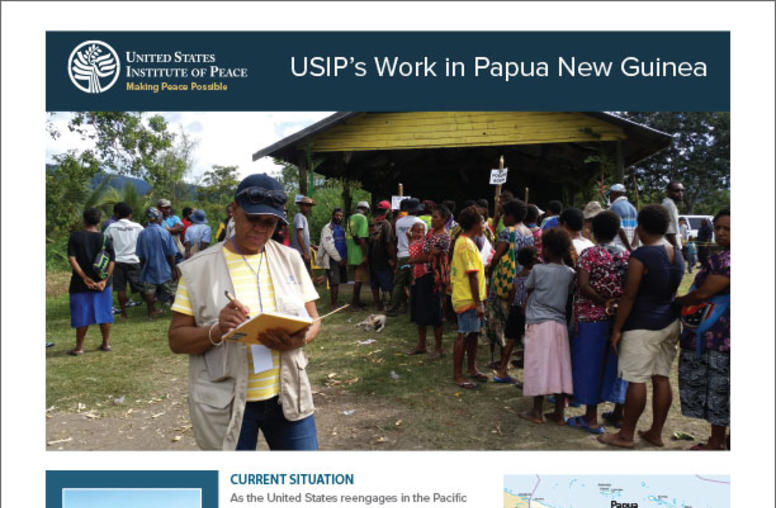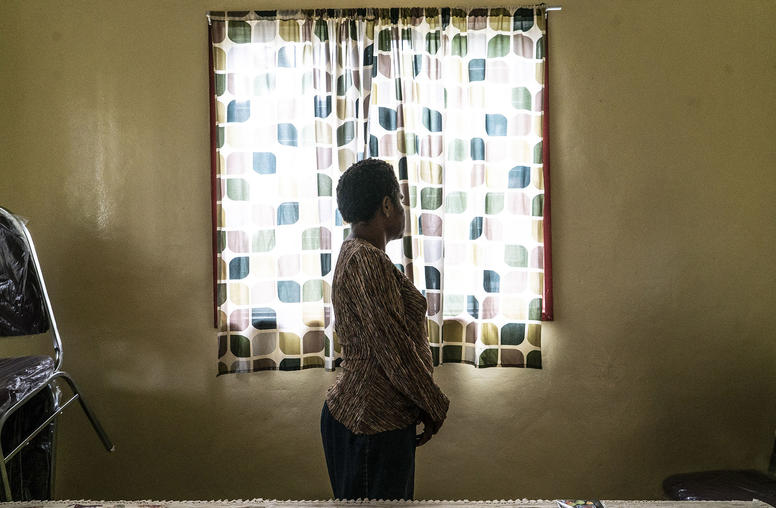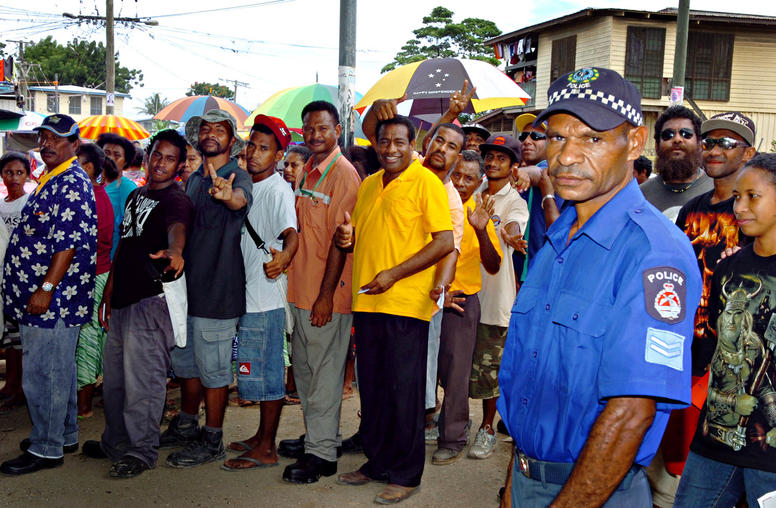The island nation of Papua New Guinea (PNG) struggles from a range of factors that exacerbate its fragility, from intercommunal violence to the potential secession of the autonomous Bougainville region to its inability to hold safe and credible elections. Sexual- and gender-based violence against women also runs rampant in the country. While the PNG state is weak and garners little trust from the people, there are critical civil society actors working to address the country’s instability and mitigate violence.
PNG is also at the center of geopolitical competition between the United States and China in the Pacific Islands regions. The United States has demonstrated that it views addressing PNG’s challenges as a vital interest by designating it as a priority country under the Global Fragility Act.
USIP’s Andrew Cheatham spoke with Gordon Peake — an affiliate at the Center for Australia, New Zealand and Pacific Studies at Georgetown University — about PNG’s fragility, how to address it and the importance of working with civil society to build resilience in the country.



